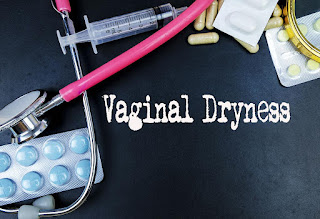Wednesday, February 6, 2019
How to prevent measles
How to prevent measles
What is measles?
Measles is a highly contagious disease caused by a virus that is spread through the air by breathing, coughing, or sneezing. Symptoms of measles are rash, high fever, cough, runny nose, and red, watery eyes. Some people who become sick with measles also get an ear infection, diarrhea, or a serious lung infection, such as pneumonia. Although severe cases are rare, measles can cause swelling of the brain and even death. Measles can be especially severe in infants and in people who are malnourished or who have weakened immune systems (such as from HIV infection or cancer or from certain drugs or therapies).
Who is at risk?
Measles remains a common disease in many parts of the world, including Europe, the Middle East, Asia, the Pacific, and Africa. In the United States, most measles cases result from international travel. The disease is brought into the United States by people who get infected in other countries. Measles outbreaks can result when returning travelers spread the disease to people who have not been vaccinated and are not otherwise protected against measles.* Anyone who is not protected against measles is at risk of getting infected when he or she travels internationally.
What can travelers do to prevent measles?
Get the measles vaccine:
- Make sure you are fully vaccinated or otherwise protected against measles.*
- Infants 6-11 months of age should have 1 dose of measles vaccine if traveling internationally.
- Children in the United States routinely receive measles vaccination at 12-15 months of age.
- Infants vaccinated before 12 months of age should be revaccinated on or after the first birthday with 2 doses, separated by at least 28 days.
- Children 12 months of age or older should have 2 doses, separated by at least 28 days.
- Adolescents and adults who have not had measles or have not been vaccinated should get 2 doses, separated by at least 28 days.
- Two doses of MMR (measles, mumps, and rubella) vaccine are nearly 100% effective at preventing measles.
- The only measles vaccines available in the United States are the measles-mumps-rubella (MMR) and the measles-mumps-rubella-varicella (MMRV) vaccines. MMR has been used safely and effectively since the 1970s. A few people experience mild, temporary, adverse reactions, such as joint pain, from the vaccine, but serious side effects are extremely rare. There is no link between MMR and autism.
Take steps to prevent illness:
- Wash your hands often.
- If soap and water aren’t available, clean your hands with hand sanitizer (containing at least 60% alcohol).
- Don’t touch your eyes, nose, or mouth. If you need to touch your face, make sure your hands are clean.
- Cover your mouth and nose with a tissue or your sleeve (not your hands) when coughing or sneezing.
- Try to avoid close contact, such as kissing, hugging, or sharing eating utensils or cups, with people who are sick..
Subscribe to:
Post Comments
(
Atom
)
-
ChomChom Roller Dog Hair Remover, Cat Hair Remover, Pet Hair Remover Revlon One-Step Hair Dryer & Volumizer Hot Air Brush, Black ...
-
10 Remedies And 8 Exercises To Get Rid Of A Double Chin Healifty V Face Band V Line Bandage Breathable Face Lift Belt Anti Wrinkle Ch...
How to moisturize vagina
How to moisturize vagina Vaginal Dryness: Causes and Moisturizing Treatments IN THIS ARTICLE Causes Diagnosis Medication Oth...




No comments :
Post a Comment